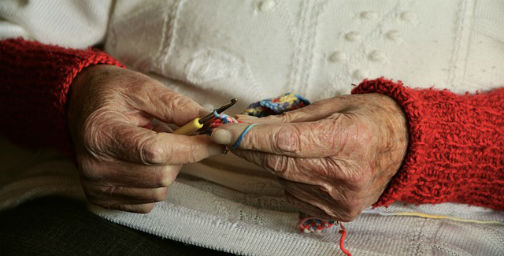Staff shortage leaves home care sector struggling
Posted on 11 December 2018

Reforms in the home care sector are needed researchers find
The home care sector currently supports more than 400,000 older and disabled people with daily activities such as washing, dressing and eating.
The report, supported by The King’s Fund, finds that the market for home care providers is fragile, with reduced margins and low fees forcing providers to leave the market.
In 2017 providers handed back home care contracts in more than one in three local authorities, and some of the largest providers have withdrawn from the publicly funded home care market altogether.
Fragile sector
Yvonne Birks, Professor of Health and Social Care at the University of York, said: "Millions of people depend on home care every day.
“Our research demonstrates the complexity of commissioning and providing this support, and the current fragility of the system in some areas.
“We need good evidence to underpin future reforms, along with a sustainable approach to the workforce and to overall social care funding."
Negative impacts
Staff shortages are a significant challenge for home care providers in many places. The report highlights concerns that fees paid by some local authorities are too low to maintain quality services, leading to high turnover of providers and staff.
This has negative impacts on continuity of care and potentially wider effects on care quality. Researchers also uncovered fears that some care staff are being paid below legal minimum wage levels.
Analysis shows that four in 10 home care workers leave their role every year and more than half of home care workers are on zero hours contracts.
Potential
Simon Bottery, Senior Fellow, Social Care, at The King’s Fund, said: “The 249 million hours of home care delivered each year, much of it publicly-funded, has huge potential to improve people’s health and promote their independence.
“The system needs a fundamental overhaul, beginning with the upcoming Green Paper, but the prize of a better, more effective home care service is worth having.”
In 2016/17 around 500 new home care agencies registered each quarter and 400 left the market.
Ceasing trade
The report also showed that in a 2017 survey, many council directors of adult social services had experienced home care providers ceasing to trade in the previous six months (39%) or having contracts handed back (37%).
Council spending on social care was three per cent lower in 2017/18 than in 2009/10. Analysis suggests a link between prices paid by councils and the quality of home care.
Based on interviews with home care providers and local authority commissioners, it also found criticism of a simplistic ‘time and task’ approach to commissioning, under which providers are paid per hour to provide care but with no measurement of the outcomes achieved.
The report, called Home care in England: views from commissioners and providers, concludes that home care needs to move away from ‘time and task’ payments to commissioning services based on achieving outcomes for people, integrated more closely with health care services.
Explore more news

New butterfly species created 200,000 years ago by two species interbreeding
Thursday 18 April 2024

Children in the North at greater risk of entering care
Wednesday 17 April 2024

Boreal forest and tundra regions worst hit over next 500 years of climate change, study shows
Monday 8 April 2024

Researchers developing ultra-sensitive blood test with potential to revolutionise diagnosis of Alzheimer’s
Thursday 4 April 2024

Attitudes to being an adult are shifting as traditional milestones become out of reach, new study finds
Wednesday 27 March 2024
Media enquiries
About this research
The Home care in England: views from commissioners and providers report can be found here: https://www.kingsfund.org.uk/publications/home-care-england
Explore our research.
